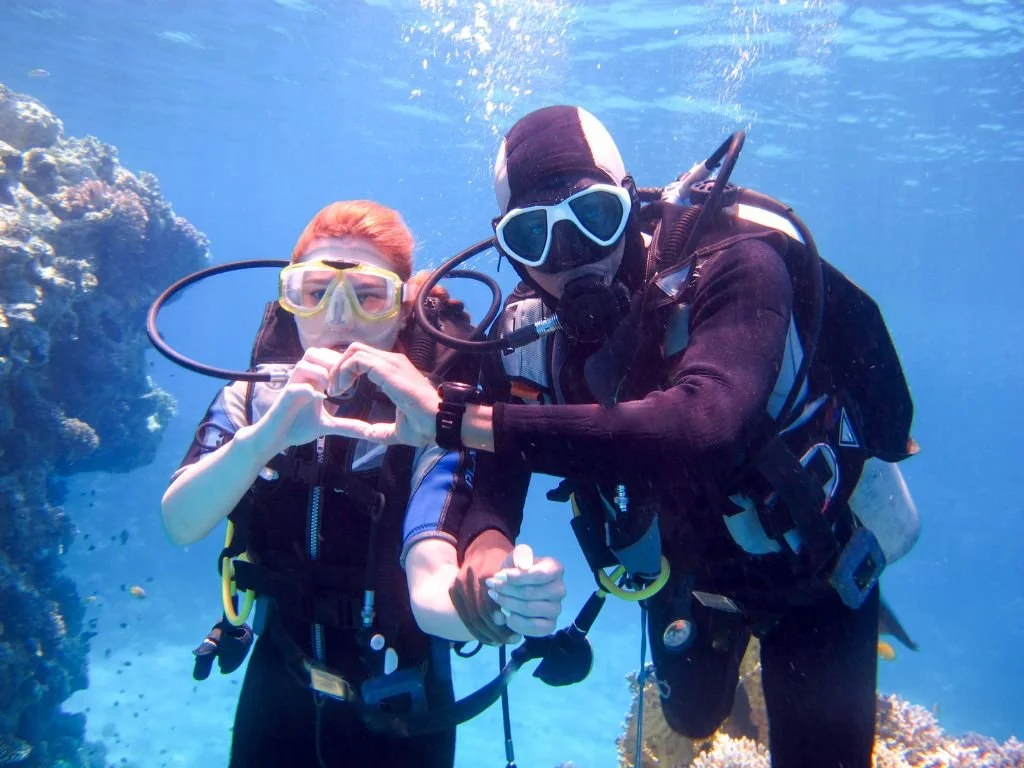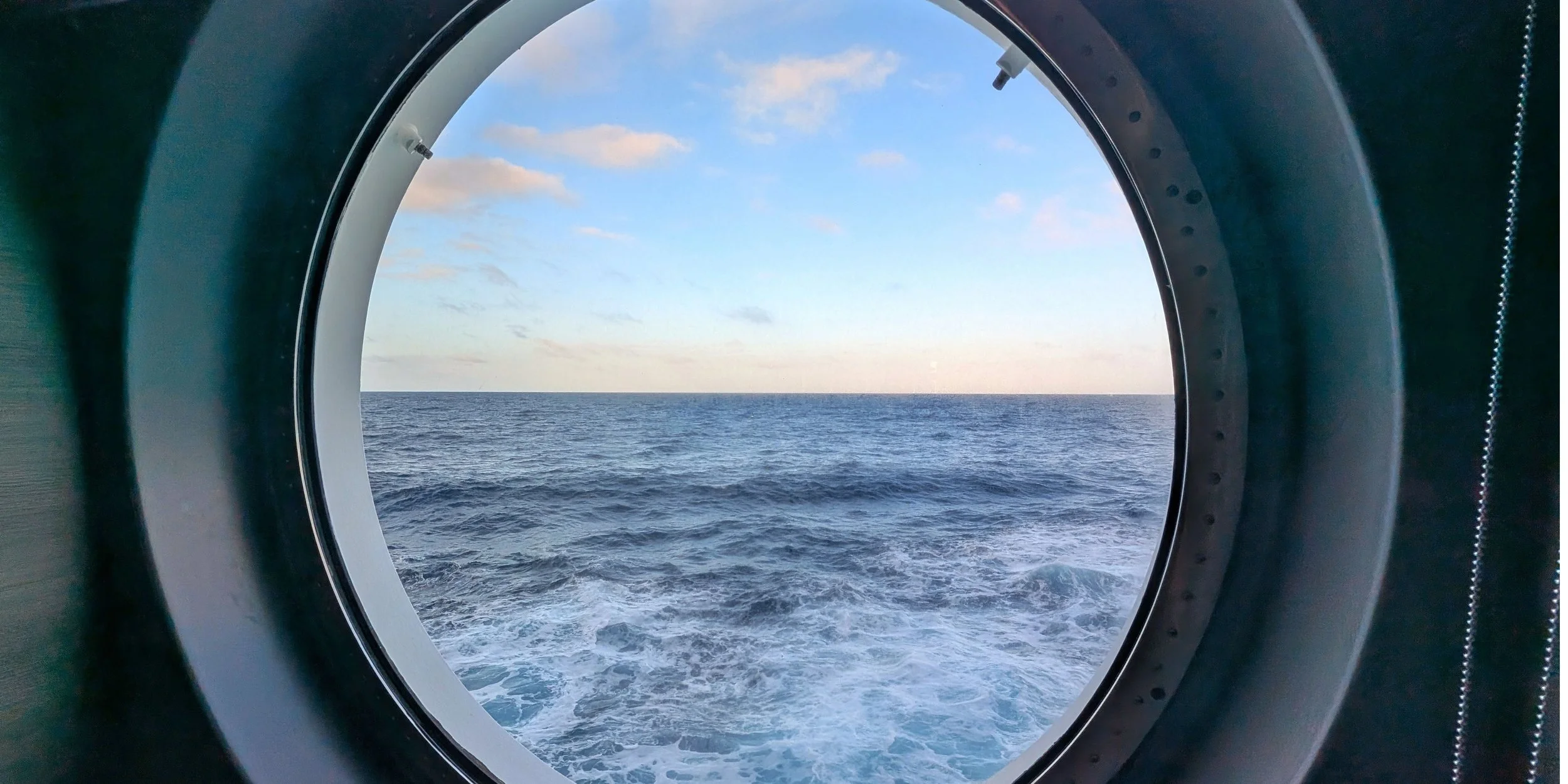Breaking Barriers: Overcoming Accessibility Gaps in Ocean-Related Careers
Published on - 7/1/25
Presented by Malik Johnson (He/Him, They/Them), Edited & Formatted by Jessica Colla (She/Her)
The ocean belongs to everyone—but not everyone has equal access to it. For many, that path to a successful marine science or ocean-related career is filled with obstacles that go far beyond ambition or passion. BIPOC (Black, Indigenous, & People of Color) professionals in the marine science, ocean conservation, and scuba diving industries face disproportionally greater barriers than their white counterparts. This article illuminates these barriers, and explores strategies for overcoming them.
We can’t protect the ocean if we exclude the people most affected by its health. Imagine a future where marine scientists, divers, and ocean advocates reflect the full diversity of our communities. Getting there requires us to confront and dismantle the barriers that have kept too many people out of the water and out of the conversation for too long!
Lets dive in!
This blog may contain affiliate links. If you make a purchase through these links, Kaimana Conservation may earn a small commission at no additional cost to you. Your support helps us continue our mission to promote ocean conservation and education. Thank you!
Systemic Barriers in Ocean Sciences and scuba Diving
Many historically marginalized communities face systemic barriers that limit their access to professional opportunities in both ocean science and scuba diving careers. As an industry, we need to move beyond simply extending an invitation to “join us”—instead we must create intentional, non-transactional engagement that prioritizes community benefits over our own institutional goals.
A crucial first step is recognizing and actively addressing the systemic barriers that prevent equitable access to employment in these fields. From historical restrictions on accessing to swimming pools to financial obstacles preventing individuals from obtaining dive certifications; multiple factors continue to exclude BIPOC individuals from ocean-related careers.
Understanding the Barriers: Why Representation in Ocean Science Matters
1.The Racial Gap in Marine Science Careers
A key challenge in career accessibility is the lack of foundational skills among historically excluded communities, limiting their ability to pursue ocean-based careers. Despite increasing diversity in STEM fields, representation in marine science and scuba diving remains disproportionately low. According to Divers Alert Network (DAN), the demographics of recreational divers in the United States reflect 77% White Americans, 8% African Americans, 5% Asian/Pacific Islander, 8% Hispanic, and 1% “other” (Divers Alert Network, 2016). The National Center for Education Statistics (NCES), the US reports only 12% of marine STEM degrees being conferred to Black, Latine, and/or indigenous students (Graham, 2023).
2. A Historical and Systemic Issue
Swimming proficiency is a fundamental skill for careers in ocean conservation and marine science, yet systemic inequalities have prevented many marginalized communities from developing this skill. Due to a long history of racial segregation in the U.S. and abroad, many Black communities were historically denied access to public pools, which has led to generational disparities in swimming ability (Wiltse, 2007).
Even today, Black children in the U.S. are far more likely to grow up without formal swim training. The CDC reported that in individuals under 30, the drowning rate was twice as high among American Indian or Alaskan Native persons and 1.5 times higher among non-Hispanic Black persons, compared to their white counterparts between 1999-2019 (Clemens, 2021). The disparity in drowning death rates between non-Hispanic, Black, and White persons increased from 2005 to 2019 (Clemens, 2021), demonstrating that the problem didn’t getting better over time. These statistics illustrate that historical barriers have long-term impacts, making swimming a significant access barrier for Black and Indigenous individuals in ocean-related careers.
This is a systemic issue, not an individual choice, and it directly impacts who can enter fields like scuba diving, marine biology, ocean conservation and animal husbandry.
3. Financial Hurdles
In addition to skill barriers, financial obstacles present another challenge. Scuba diving courses, certifications, and gear are expensive. Unlike some recreational activities that require little upfront investment, diving is highly technical and requires substantial financial commitment.
Similarly, many entry-level opportunities in marine science—such as internships, research assistantships, and volunteer positions—are unpaid. This model disproportionately benefits those who can afford to work for free, effectively excluding individuals from low-income backgrounds. Without financial assistance, these barriers prevent many talented and passionate individuals from even considering a career in diving or marine science.
4. The Importance of Entry & Retention
While many organizations focus on retention—keeping individuals engaged once they enter the field—it is equally important to address barriers to entry. Without structured entry points, many aspiring marine professionals will never gain access to the field in the first place. A comprehensive model should focus on both entry and retention, allowing individuals to successfully transition from early exposure to long-term careers in ocean conservation, marine science, and animal husbandry.
5. Addressing “Aging Out” in Youth Programs
Many institutions excel at recruiting and encouraging participation in youth programs, yet often fall short in creating clear pathways for long-term engagement and career development. Youth volunteer programs—where young volunteers gain hands-on experience in the workplace—is a pertinent example of an initiative that requires refocus. These programs often attract diverse participants, providing valuable early exposure to ocean-related careers. However, a common challenge arises when participants “age out” and need to seek paid employment. Without financial compensation from volunteer-based organizations, many young people are forced to leave these programs to take unrelated jobs, causing them to lose their connection to marine science entirely.
Addressing this gap requires intentional support for these individuals, from their initial introduction to ocean science all the way to professional opportunities, including access to paid internships, mentorship programs, and financial resources that enable continued participation.
Creating Real Change: Strategies for career Inclusivity
Moving Beyond Transactional engagement
Marine science organizations must shift their approach. We cannot simply ask underserved communities to “join us” without first removing these structural barriers and provide meaningful, long-term support. Our work must center on creating real, tangible opportunities that provide support rather than extracting labor or engagement without meaningful return. Engagement with individuals from these communities must be non-transactional—meaning organizations should focus on what they can provide to communities rather than expecting them to fit into pre-existing structures.
Practical Solutions for Expanding Access
Organizations can make ocean science careers more accessible by implementing the following strategies:
PROVIDE FINANCIAL ASSISTANCE OR SCHOLARSHIPS for costly certifications, equipment, and training programs.
ADVOCATE FOR PAID INTERNSHIPS AND ENTRY-LEVEL POSITIONS, ensuring marginalized individuals are not excluded from early career opportunities and can gain experience without financial hardship.
CREATE CULTURALLY COMPETENT SWIM AND DIVE PROGRAMS that acknowledge historical inequities and build confidence in the water.
DEVELOP LONG-TERM MENTORSHIP AND CAREER PIPELINES so that engagement doesn't end after a one-time experience.
By investing in these initiatives, organizations can help diversify marine science and create sustainable pathways for underrepresented individuals.
The Power of Collaboration
Collaboration with community organizations, advocacy groups, and professional networks is essential in advancing these efforts. Groups such as Afro Swimmers, Swim Seattle, and the American Academy of Underwater Sciences (AAUS) provide valuable expertise and perspectives that can help shape more inclusive and effective programs. Implementing meaningful change requires dedicated research, strategic planning, and sustained community engagement. While this work involves significant effort and coordination, the long-term impact—expanding access, fostering diversity, and strengthening the future workforce in marine conservation—is well worth the investment.
Building a More Inclusive Future in Marine Science
Listen and Learn
A key lesson I’ve learned is to avoid being prescriptive. Organizations cannot assume to know what a community needs without listening to their perspective first. Effective community engagement requires collaboration, representation, and responsiveness to the unique challenges faced by underrepresented groups. The perspectives of the communities being served should guide the decision-making process, ensuring that initiatives are meaningful, sustainable, and accessible to all.
What Organizations Can Do Today
To strengthen diversity, equity, and accessibility for BIPOC professionals, institutions can implement inclusive strategies such as:
HOSTING PRESENTATIONS AND WORKSHOPS to build awareness and inclusivity in marine science and ocean conservation.
PARTNERING WITH COMMUNITY ORGANIZATIONS to strengthen outreach efforts and establish stronger relationships with historically excluded communities.
REVISING THE HIRING PROCESS and the job description to make them more inclusive to all aspiring applicants.
NETWORKING AND COLLABORATION with partners who share our mission of expanding access to ocean-related careers.
PROFESSIONAL DEVELOPMENT INITIATIVES aimed at making diverse career pathways more equitable for all.
Breaking the Cycle for a better tomorrow
Building an inclusive marine science field requires long-term commitment, structural change, and continuous engagement. It is not enough to acknowledge barriers—we must actively DISMANTLE them.
Institutions can take meaningful action by investing in:
FINANCIAL SUPPORT & ACCESSIBILITY – Providing scholarships, grants, and low-cost or free scuba training can remove economic barriers that often prevent underrepresented individuals from pursuing marine careers. Additionally, eliminating unpaid internships ensures that opportunities are open to all socioeconomic backgrounds, not just those who can afford to work for free.
MENTORSHIP & CAREER PATHWAYS – Creating structured mentorship programs connects aspiring marine professionals with experienced scientists, divers, and conservationists who can provide guidance, networking opportunities, and career advice. Establishing long-term pipelines—from early exposure programs to full-time employment—ensures that diverse professionals stay in the field rather than being forced out due to lack of support.
POLICY REFORM & INSTITUTIONAL CHANGE – Organizations must review and revise hiring policies, ensuring that job descriptions, recruitment strategies, and leadership opportunities promote diversity, equity, and inclusion. Partnering with community-based organizations and historically underrepresented groups ensures that policies reflect the real needs of marginalized communities rather than being performative efforts.
By taking these steps, institutions can help ensure that the next generation of marine professionals reflects the diversity of the communities they serve.
Final Thoughts
The future of ocean conservation depends on inclusion. To truly expand access to ocean-related sciences and scuba diving careers, institutions must move beyond surface-level diversity efforts and actively invest in systemic solutions.
Organizational equity must include structural changes in hiring, training, and institutional policies. Re-evaluating job descriptions, diversifying hiring committees, and incorporating equity training into all levels of professional development have proven to be effective strategies for diverse and equitable employers.
Overall, ensuring systemic change requires ongoing collaboration, assessment, and commitment to continuous improvement. The work is challenging, but the impact is worth it. It’s time to change the narrative and build a more diverse, equitable, and accessible future in marine science.
Would You Like to Take This Further?
Comment below: What barriers do you think need to be addressed in marine science?
Share this post with organizations and professionals who can take action!
Get involved with groups working toward diversity in marine science.
SHOP JESSICA’S FAVORITE
OCEAN-LOVER ESSENTIALS
From sustainable household items to quirky sealife accessories, these tried-and-true products are sure to make you smile!













































Not sure when to specialize in marine biology or marine science? This helpful guide breaks down when to stay broad, when to specialize, and how to make strategic academic decisions that protect your future career options as a scientist.